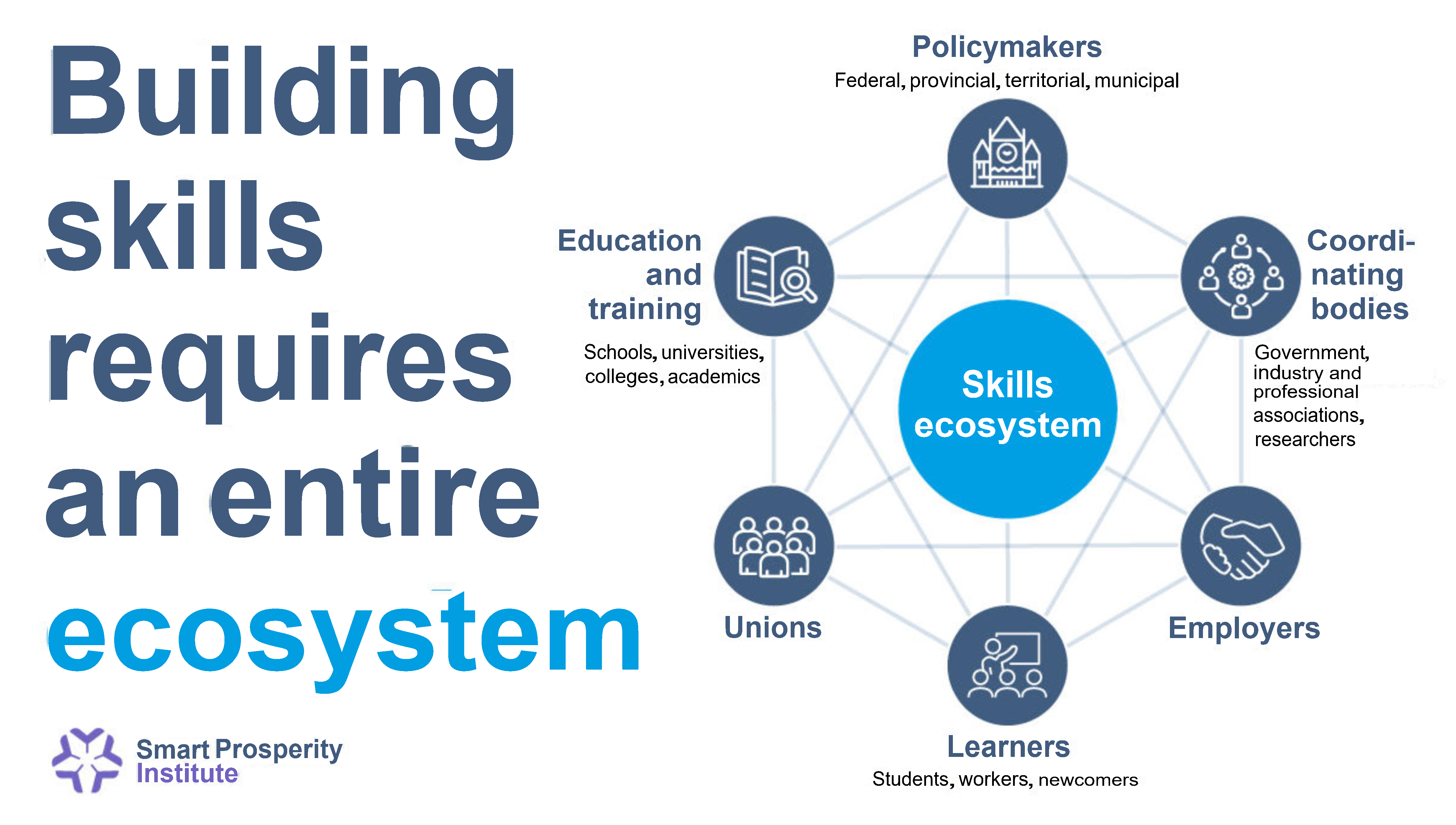
July 21, 2025
By Hem Dholakia
Recently, one word has featured prominently in news stories across Canada: unprecedented. Unprecedented wildfires, intense flooding, hurricanes and hailstorms resulted in damages and payouts exceeding $5 billion in 2024 alone. In addition to the economic costs, they have disrupted lives and displaced communities.
This year has been no different, with Manitoba and Saskatchewan declaring provincial states of emergency due to wildfires. Given this new reality, safeguarding roads, homes, crops, forests and protecting the lives of people is of paramount importance.
Several efforts to adapt to a changing climate are already underway and there is a growing awareness of the implications for jobs and workers. Canada’s National Adaptation Strategy recognizes the need for a skilled and diverse workforce that’s ready to adapt. Whether it is using green roofs and urban parks to reduce the risk of flooding or adopting new methods for tackling wildfires near urban areas, every sector and region needs to plan for how to equip their workforce with the right skills to meet the challenge.
Investments in infrastructure are known to create jobs and the same holds for adaptation. For example, in 2022, the Smart Prosperity Institute estimated that investments in flood protection measures alone could create more than 60,000 jobs by 2030. Other interventions, such as building resilient energy systems, heat-health warning systems, or coastal protection measures, could create thousands more jobs in the coming decade across Canada. Internationally, new roles such as City Resilience Officer or Chief Heat Officer are becoming increasingly important.
However, the larger set of changes will require upskilling the current workforce to build adaptation skills across project planning, operations and maintenance. This involves a combination of technical and non-technical knowledge.
For instance, consider an engineer tasked with building a road near the coast. The road may be exposed to multiple risks now and under future climate conditions, such as sea-level rise, erosion and extreme weather. Building the road will require her to navigate technical and interpersonal decision-making processes and consider future climate conditions (e.g., the road should not be built in an area that has high flood risk). She may have to use new materials or adopt new construction standards to address current and future risks, often with significant cost implications. In doing so, she may have to engage with a broader number of technical experts and manage collaborative, interdisciplinary teams. Therefore, she will require strong interpersonal skills as well as competencies across risk assessment and interdisciplinary problem-solving, in addition to civil engineering knowledge.
The example given above will be replicated across all sectors of the economy, making a focus on adaptation jobs and skills an important policy consideration. However, it is often left out of adaptation planning. To successfully plan for climate change adaptation, policymakers will need to identify:
Drawing on past work on green skills (also known as the skills required for decarbonization), SPI recommends the adoption of an ecosystem approach, where each group of stakeholders works in a coordinated manner to overcome labour and skills challenges related to climate change adaptation.

Source: Smart Prosperity Institute - An Ecosystem Model of Skills Development
The Smart Prosperity Institute is undertaking a foundational analysis, commissioned by Natural Resources Canada’s Climate Change Adaptation Program (CCAP), of how the climate change adaptation and resilience workforce in Canada is expected to grow in the coming 10-20 years. With input from key actors and working group members under Canada’s Climate Change Adaptation Platform, our research will focus on identifying:
This new project is a first step towards understanding the job impacts and skills needed for building climate-resilient communities and economies. As hotter summers, intense flooding and raging wildfires become the new norm for Canada, it is important to institute climate adaptation measures at scale. The success of these measures will be determined by the presence of a skilled workforce.
Smart Prosperity Institute is undertaking a foundational analysis, commissioned by the NRCan CCAP program and gratefully acknowledges their support.